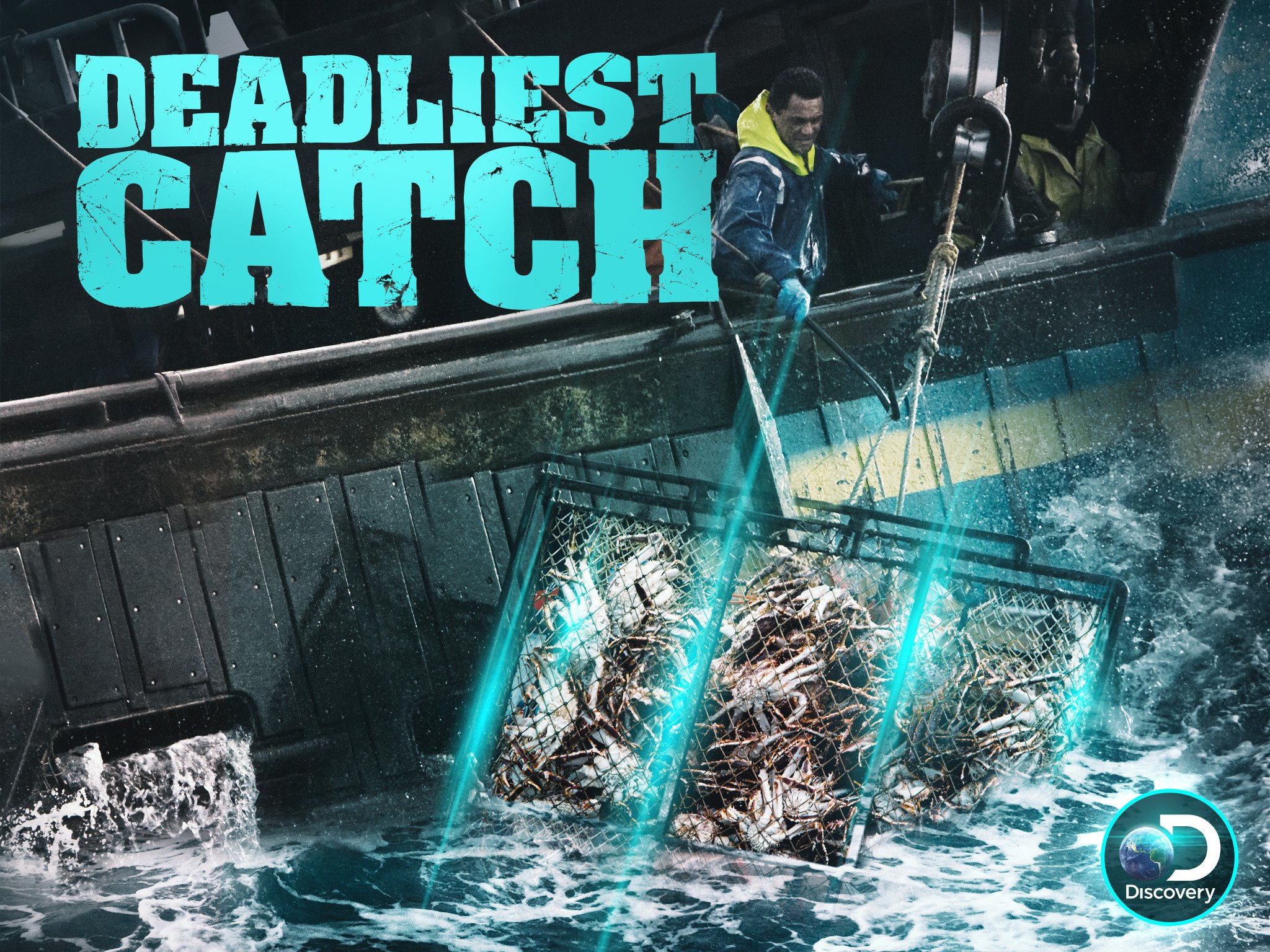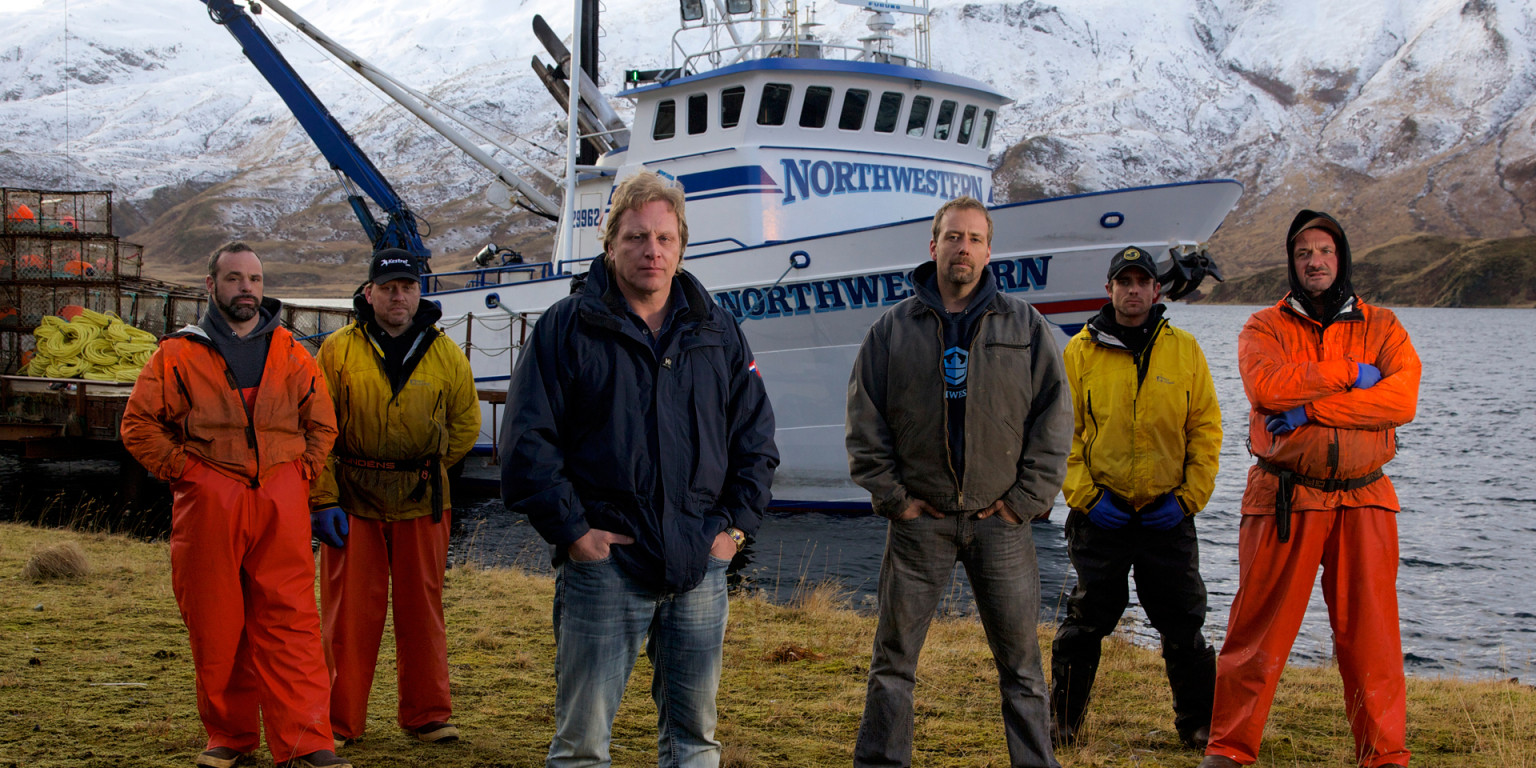Who Died From Deadliest Catch Show
The world of crab fishing, as portrayed on shows like Deadliest Catch, truly offers a glimpse into a very demanding and, well, sometimes quite perilous way of making a living. People often wonder about the brave souls who face the vast, cold waters of the Bering Sea, especially when stories of hardship and loss surface. It's a natural thing to think about the people involved, their lives, and what happens when someone connected to such a visible, high-stakes endeavor is no longer with us. The curiosity about who might have passed from the Deadliest Catch show is, in a way, a reflection of how much we connect with these individuals we see on our screens, isn't it?
When news reaches us that someone has gone, particularly a public figure, it frequently prompts us to ponder the very nature of life's conclusion. This contemplation isn't just about the person themselves; it's also about how we, as a collective, process such news and the language we use to describe that ultimate cessation of being. It's almost, in some respects, a moment for everyone to pause and consider the fragility of existence, and how, you know, life's journey always has a final stop.
It brings us to a more general look at what it means when someone is no longer with us, and how these moments, even when they involve people we only know from television, can prompt a deeper thought about life's impermanence. The way we talk about someone leaving this world, the words we pick, they all hold a lot of weight, as a matter of fact, and help us make sense of something so universally felt.
Table of Contents
- The Nature of Passing On - What Does It Mean to Die?
- How Do We Talk About Someone Passing? Who Died From Deadliest Catch Show?
- A Public Figure's Departure - The Case of Anne Burrell
- Anne Burrell - A Look at Her Personal Details
- What Happens When Life Ends, and What It Means for Who Died From Deadliest Catch Show?
- Why Do We Fear The End? A Common Human Feeling
- Is There a Difference in How We Talk About It When We Discuss Who Died From Deadliest Catch Show?
- The Irreversible Stop - A Medical View of Life's Conclusion
The Nature of Passing On - What Does It Mean to Die?
When we speak of someone "passing on," we are, in essence, talking about the very final moment of their physical existence. The meaning of "to die" is, quite simply, to move away from physical life, to cease being alive. It marks the conclusion of a life's story, the point where all biological processes that keep a living thing going come to a permanent stop. This cessation is, apparently, something that eventually and quite certainly happens to every single living thing on our planet, from the smallest plant to the largest creature. It's a universal truth, you know, a part of every life's cycle.
For those living beings that possess a brain, this ultimate cessation can also be described as the permanent stop of all brain functions. When people, animals, and even plants reach this point, they simply stop living. It's a concept that is, basically, quite straightforward in its definition, yet carries such profound weight for those left behind. The remains of what once was a living being are what are left after this final moment. It’s a very stark reality, isn't it, that every life has its finite period?
How Do We Talk About Someone Passing? Who Died From Deadliest Catch Show?
The words we choose when discussing someone's passing often reflect the circumstances or our feelings about the event. For instance, if someone says, "My dog passed away last week," it's a gentle way of expressing that their beloved pet is no longer with them. Similarly, someone might say a person "died a natural death" at home, surrounded by the people they cherished, which paints a picture of a peaceful departure. Or, conversely, they might say someone "died a violent death," which, of course, suggests a much different and often tragic end. These phrases, really, help us communicate the nuances of such a significant event.
There are many ways to describe this final moment, and each phrase carries its own subtle feeling. Someone might have "perished in the fire," which conveys a sudden and often devastating end. Others might have simply "fell," "succumbed," "departed," "expired," or "went." These words are all different ways of saying that a life has reached its conclusion. In contrast, words like "lived," "breathed," "came to," "revived," "lingered," "existed," or "was," describe the continuation or return of life. It’s interesting, you know, how many different words we have for one singular event.
A Public Figure's Departure - The Case of Anne Burrell
Sometimes, the news of someone's passing reaches us through public channels, especially when the person is a known figure. For instance, there was news regarding Food Network celebrity chef Anne Burrell. Reports indicated that she had passed away in New York City. Law enforcement sources provided information to TMZ, stating that emergency medical services personnel had received a call concerning a woman who needed assistance. This kind of public announcement about someone well-known, like Anne Burrell, certainly makes many people pause and reflect, doesn't it?
The information about Anne Burrell's passing, while distinct from the lives of those on the Deadliest Catch show, serves as an illustration of how the news of a public figure's departure spreads and impacts people. It reminds us that regardless of their profession or the spotlight they live under, everyone experiences the same fundamental end to their physical journey. It's a reminder, too, that even when someone is a familiar face on television, they are, in fact, just like anyone else in this fundamental aspect of life, you know.
Anne Burrell - A Look at Her Personal Details
While the focus of the original information was brief and primarily on the circumstances of the event, for a public figure like Anne Burrell, people often seek more personal details. Her work as a celebrity chef made her a recognizable face to many who enjoy culinary shows. Learning about her passing, even if it's not directly related to the dangerous fishing grounds of the Bering Sea, still brings a moment of shared reflection for those who followed her career. It's a situation where the general public feels a connection, in a way, to someone they've watched and admired.
| Detail Category | Information |
|---|---|
| Known For | Celebrity Chef, Food Network Personality |
| Location of Event | New York City |
| Source of News | Law enforcement sources to TMZ |
| Responding Personnel | EMS personnel |
| Circumstance | Received a call of a woman in need of assistance |
What Happens When Life Ends, and What It Means for Who Died From Deadliest Catch Show?
The conclusion of life, regardless of how it happens or to whom, means the permanent stop of all biological functions that keep an organism going. For living things with a brain, this conclusion can also be thought of as the permanent stop of all brain activity. When people, animals, and plants cease living, they simply stop. A year after my dog passed away, for instance, the memory still lingers, but the physical presence is gone. This biological reality applies to everyone, whether they are a television personality or a fisherman on a crab boat. It's a very universal truth, isn't it?
Sadly, both a person and their mother might pass away due to something like cancer, as was mentioned in one example. This highlights that the cause can vary greatly, from natural reasons to more sudden events. The idea of "I would die a very happy person if I could stay in..." suggests a desire for a peaceful, contented end, surrounded by what brings joy. But the fundamental biological process remains the same for everyone. It's really about the body's systems shutting down completely and irreversibly, a final quietude that encompasses all living things, you know.
Why Do We Fear The End? A Common Human Feeling
It's quite common for many people to harbor a deep unease about their own eventual passing. This apprehension, this sense of dread, is a very human feeling. It stems from the unknown, the irreversible nature of life's conclusion, and the separation from everything familiar. When we hear about someone else's passing, especially someone we've seen on screen, it can, in a way, bring these personal reflections to the surface. It makes us think about our own lives and the lives of those we care about, doesn't it?
The stories from shows like Deadliest Catch, with their inherent dangers, can certainly heighten this sense of life's fragility. The very real risks faced by the crews can make us ponder the precariousness of their lives, and by extension, our own. This fear isn't necessarily about the act of ceasing to live itself, but rather about what it means for those left behind, the experiences that will be missed, and the finality of it all. It's a profound thought, really, that touches everyone at some point.
Is There a Difference in How We Talk About It When We Discuss Who Died From Deadliest Catch Show?
There are subtle, yet important, distinctions in the language we use to describe someone's passing. An explanation of the differences between words like "dead," "die," "died," and "pass away" helps us to communicate more precisely and with more feeling. "Die" is the verb, the action of stopping living. "Died" is the past tense of that action. "Dead" is an adjective, describing the state of no longer being alive. "Pass away" is a softer, more gentle phrase for the same event. These choices in words can significantly alter the tone of a conversation about loss.
For example, saying "my father died suddenly at the age of 48" is a direct statement of fact, conveying the abruptness of the event. But saying "he passed away peacefully" suggests a quiet, calm departure. The children "perished" in the fire evokes a sense of tragic loss. These different terms allow us to express the various circumstances and emotions linked to life's conclusion. It's quite interesting, you know, how our language gives us so many ways to approach such a sensitive topic.
The Irreversible Stop - A Medical View of Life's Conclusion
From a medical standpoint, the conclusion of life is defined as the irreversible cessation of all biological functions that keep a living organism going. This means that the body's systems, like breathing, circulation, and brain activity, have permanently stopped and cannot be restarted. For organisms that have a brain, this final state can also be described as the permanent stop of all brain functioning, particularly the entire brain. It's a very clear, clinical definition of the ultimate end.
When emergency medical services personnel receive a call about a person in need of assistance, their goal is to prevent this irreversible cessation if at all possible. However, there comes a point where all efforts are no longer effective, and the biological processes simply stop for good. This medical understanding helps to provide a very objective measure of when a life has truly ended, regardless of the circumstances leading up to it. It’s a stark reality, basically, that every living thing faces.
This discussion has explored the profound meaning of life's conclusion, drawing from general definitions and an example of a public figure's passing. We've considered the various ways we talk about someone leaving this world, the common human feeling of unease about the end, and the medical perspective on the irreversible stop of biological functions. The information presented helps us understand the universal nature of life's end, regardless of whether it concerns someone from a demanding show like Deadliest Catch or any other individual.

Who Died On Deadliest Catch?

Who Died On Deadliest Catch?

Deadliest Catch | Shows | discovery+